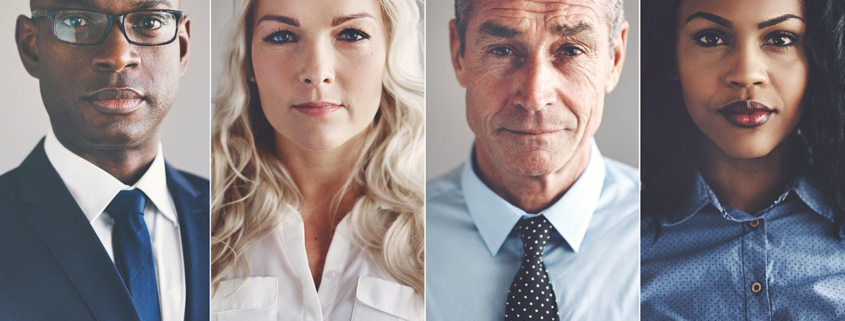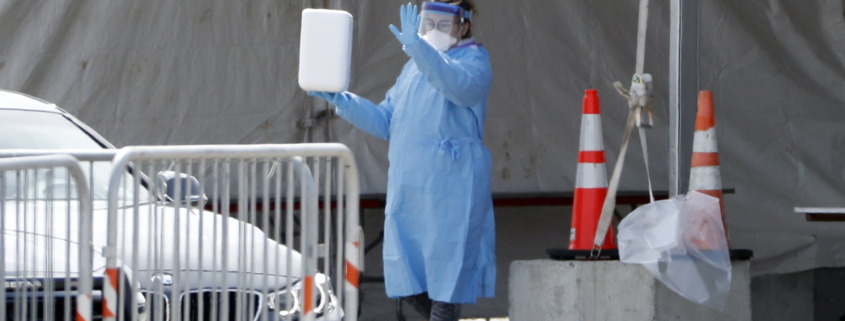By Erik Olsen, Co-Founder
Recently a friend posted on her Facebook page to share the story of how she helped a mother of five buy milk at the grocery store. It was a simple story, but it showed how she was alert to someone’s needs and helped out during this time of deep disruption to our daily routines.
At Common Ground Committee, one of our objectives is to show what good looks like by hosting public forum events. It occurred to me, in reading my friend’s story, that we can all contribute to what good looks like by relating our own experiences, events we observe or stories we hear from others of how people are coming together as a community. During this time of social distancing, sharing the ways we help each other face various challenges offers both hope and a reminder that we are #InThisTogether.
Drop us a line with your experiences, stories, and observations, and we’ll share them in our new blog series. With your help, we can all get a greater sense of what good looks like – and be inspired to do likewise with our friends and neighbors.
What Good Looks Like During COVID-19
Working Together in the Grocery Line
I want to share my amazing experience at our local grocery store today. I live in Tucson. We rarely have more than 3 people in our check out lines. I live about five blocks from our local grocery store. Ryan and I have been taking turns going to the store and adding a couple non-perishable items here and there in each trip.
Today I was third in line. The young mother in front of me chatted with me as we waited for check out. We swapped kiddos stories. I praised her for being stuck at home with five boys. They aged from 18 months old to 13 yrs. old.
When it was her turn to check out, the cashier told her that there was a two gallon limit on milk. She had five gallons in her cart.
I asked the cashier if I could buy two of the gallons and give it to her. The cashier said. “yes.”
The young mother grabbed several of my groceries and paid for them. I’m still not sure what she bought for me. I know that there was a big bottle of Coke and some artichokes.
We exchanged the two gallons of milk that I purchased for her, and the groceries she bought for me. We practiced social distancing, bumped elbows and went on our ways. ~Tucson, AZ
Finding Connection Instead of Stress
I stood in line for an hour the other day – just trying to get to the check out stand at the grocery store – we had a great time, everyone laughing and joking… it was nice to feel connected with my LA people. ~ Los Angeles, CA
Caring for Community Needs
Church officials and members are contacting each other and checking to see how they are and if they need any errands run and/or need anything purchased for them. Grocery stores are making specific senior citizen shopping hours. There is a Facebook group for the city for people to relay where to find specific items to buy, and reaching out to help. Free breakfast and lunch for K-12 children deliveries/pick-up. ~ Springfield, IL
Rallying Around Local Businesses
One of my restaurant clients in Westchester who is in the midst of the mess in NY sent out an email about their take out. I do their website and social media posts, and within 30 minutes she emailed me and told me they had 31 take out orders for tomorrow… and that was at 5:30 last night. I could feel the excitement and hope that maybe people will still try to support these businesses with the take out services. It was a positive moment in the midst of all this fear and worry. ~ Guilford, CT
Reconnecting Around a (Virtual) Dinnertable
Jim and I had dinner at home while Facetiming with our good friends in Connecticut, while they had their dinner. So fun! It was brilliant! 😄👍❤ ~ St. Louis, MO
******
I [Erik] will weigh in on this, since my wife and I are the friends in Connecticut.
Years ago when we were all “young marrieds,” we lived near each other in Southern California and we would get together frequently for dinner, movies, skiing, beach trips, etc. Twenty years ago my family moved to Connecticut, and more recently Sue and Jim moved to St. Louis. We have maintained contact but obviously our interaction has diminished over the years.
My wife and Sue had a phone call the other day and were discussing how social interactions were being curtailed and everyone was homebound. That led to the idea of having a dinner together remotely. We cooked dinner on our end, and they did on their end. We each set up a computer on the dinner table and commenced having dinner together.
The event was just like old times. The conversations started with the women talking about the kids and home life and ended with the husbands talking about business and technology (we are, after all, baby boomers). We now expect to make this a regular event. ~ Wilton, CT
Putting Others First and Finding a Win-Win
Bought a computer today so a coworker is ready if we have to work at home. There was a mom there shopping for the same style computer to teach her young son at home. The store only had two of those computers, and they had slightly different capabilities. We were telling her to pick first and she was telling us to pick first. We eventually each got a computer that worked for our intended purpose.
Spreading Hope By Making Music
Since I am in Milano and its area, where it seems to be hit the hardest, so far, I will share with you what is going on. After the first panic which saw queues of people buying food as if there was no tomorrow, things did calm down. Be aware that we are at the end of the 2nd week of isolation. I live downtown surrounded by gardens and near a new area with modern architecture. I say this because Milano was the first Roman capital. Its name was Mediolanum (in the middle), since its geographical position takes you everywhere in less than 1hr (either air or car).
At the end of last week the atmosphere was horrible. Beyond the deafening silence you wouldn’t see anyone around except those that would walk their dogs during the day. Last Sunday though, in the complex building near our apartment, there is a famous Italian rapper, Fedez and his wife Chiara Ferragni (the first international fashion influencer in the world – Harvard studies her success story, look it up it’s interesting) who rented speakers and mic, opened the windows and around 4 pm started playing few Italian songs famous around the world like Volare etc. At the end even our national anthem. The interesting thing is that many went to their balconies to sing along and shout. Italians are NOT nationalists, but they have become. Well this idea by Fedez broke the spell under which we all felt like ghosts. People showed up on balconies and started singing along, making videos.
Like in the US, the north is always more “British” i.e. contained, silent, formal, so it was a joy to hear people participate and wanting to share life, show up, even sing. Milano is a thriving city, the heartbeat of Italy, a small New York tougher than NY. I actually rephrased Frank Sinatra’s song: if you make it here, you can make it anywhere else. Trust me! Very business, very cold, very closed up. So the scene was amazing, a huge sign of wanting to carry on straight up, and hopefully with even some music in the heart.
It looks like they will keep us in house for another 2 months, because Italians have great talents, but as excellent creatives are disobedient, so for the fault of some we all must pay the price, at least that what seems to be today. But on the other hand, a wave of huge generosity has sprang from everyone, with donations (again this is not customary, the concept of Trust of Foundation was born in UK/USA) from simple employees to billionaires like Giorgio Armani and the not so loved Berlusconi, of course.
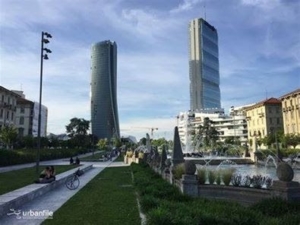 I attached a picture of the area where I live, modern and old, not too old :)) 1800s buildings. The skyscraper on the left was designed by Zaha Hadid, and on the right by japanese architect Isosaky and the third which is not in the picture is by Libeskind. I also attached the most recent video I could find of the area fairly updated. I live in the one old house turn of the century near the new ones. ~ Milano, Italy
I attached a picture of the area where I live, modern and old, not too old :)) 1800s buildings. The skyscraper on the left was designed by Zaha Hadid, and on the right by japanese architect Isosaky and the third which is not in the picture is by Libeskind. I also attached the most recent video I could find of the area fairly updated. I live in the one old house turn of the century near the new ones. ~ Milano, Italy
Email us to share your stories of “what good looks like” for our new blog series.

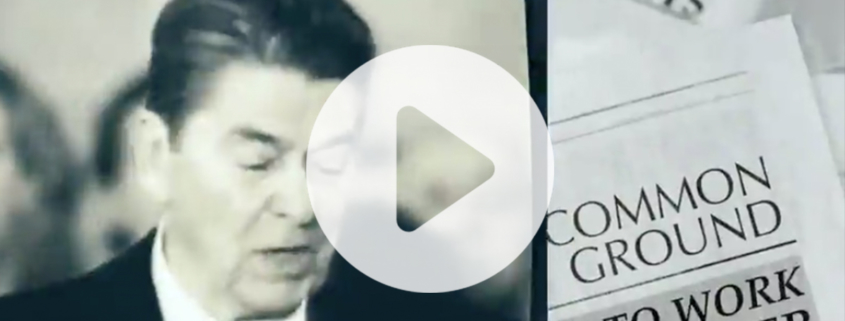
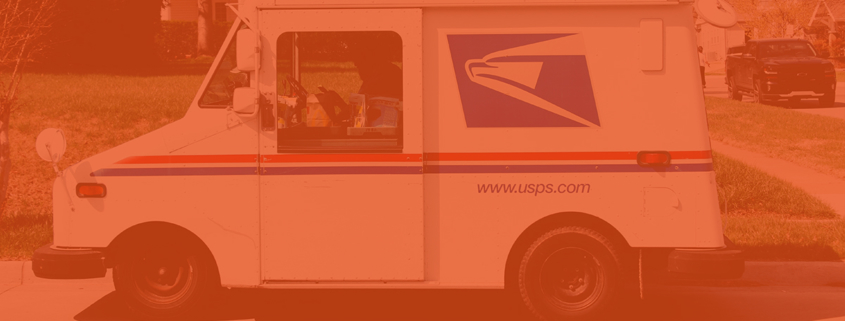

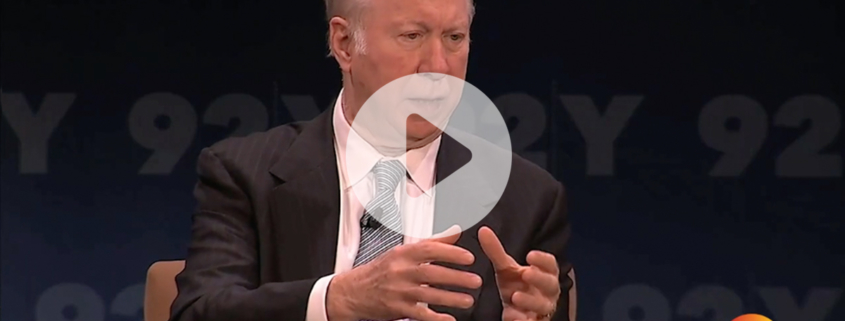
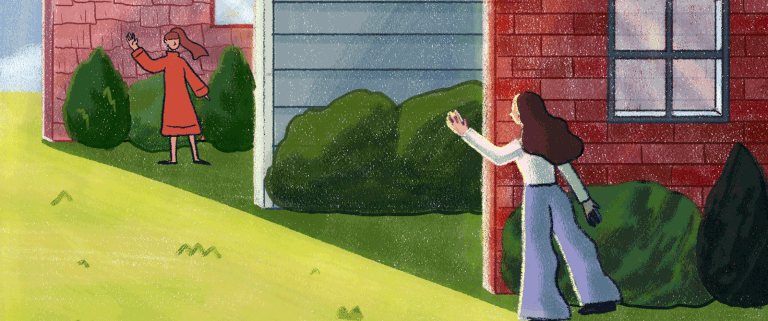
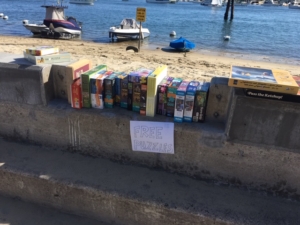 I am a fan of jigsaw puzzles, and they were stacked and stashed in multiple nooks and crannies in our beach house. I sorted them by size and theme and they are now impeccably organized – PLUS I gave away twenty two of them. I set them out on the seawall with a sign that said “Free Puzzles,” and passersby helped themselves to all but three (and I have since found homes for two of those).
I am a fan of jigsaw puzzles, and they were stacked and stashed in multiple nooks and crannies in our beach house. I sorted them by size and theme and they are now impeccably organized – PLUS I gave away twenty two of them. I set them out on the seawall with a sign that said “Free Puzzles,” and passersby helped themselves to all but three (and I have since found homes for two of those). I attached a picture of the area where I live, modern and old, not too old :)) 1800s buildings. The skyscraper on the left was designed by Zaha Hadid, and on the right by japanese architect Isosaky and the third which is not in the picture is by Libeskind. I also attached the most recent video I could find of the area fairly updated. I live in the one old house turn of the century near the new ones. ~ Milano, Italy
I attached a picture of the area where I live, modern and old, not too old :)) 1800s buildings. The skyscraper on the left was designed by Zaha Hadid, and on the right by japanese architect Isosaky and the third which is not in the picture is by Libeskind. I also attached the most recent video I could find of the area fairly updated. I live in the one old house turn of the century near the new ones. ~ Milano, Italy